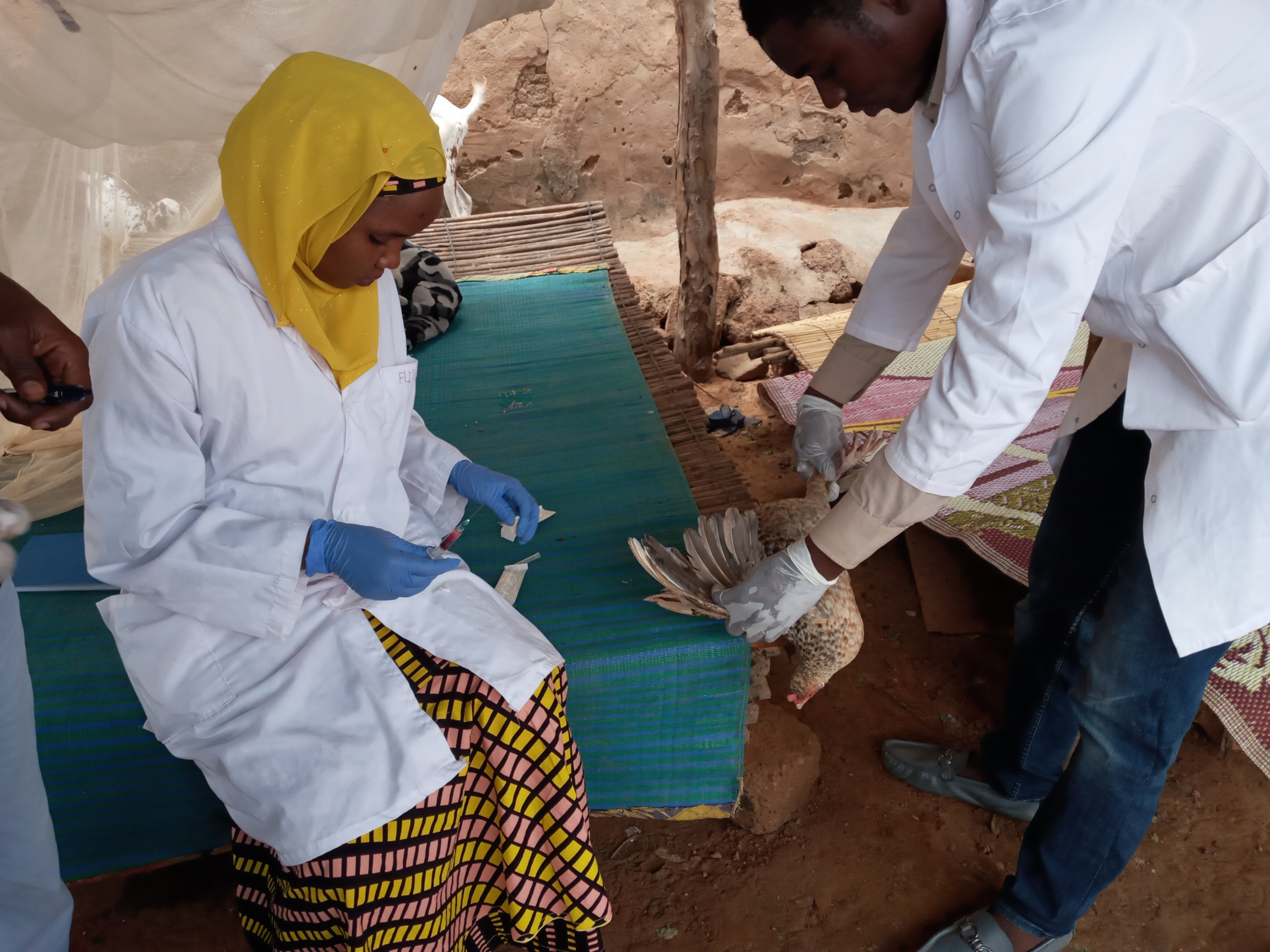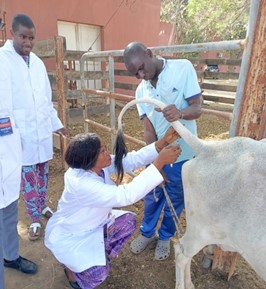
Group picture in front of the entry to the EISMV in Dakar IIIIIII Photo de famille devant l'entré à l'EISMV à Dakar.
Between 22 to 26 April 2025 and between 12 to 16 May 2025, WOAH and EISMV in Dakar hosted training sessions for teachers from P3V partner schools in microbiology, biochemistry-haematology and veterinary skills. These training courses are capacity-building sessions for teachers from partner schools of the P3V project in Togo, Senegal and Benin, with the aim of improving the quality of training for veterinary paraprofessionals.
Dr André Bedekelabou, WOAH Regional Technical Assistant for the ‘P3V’ Project, along with the EISMV Director General, welcomed the participants to the training and delivered their official remarks, which marked the opening ceremonies of the two training sessions.
The Professionalising Veterinary Paraprofessionals or ‘P3V’ project aims to improve access to quality veterinary services for livestock farmers in French-speaking Africa. To achieve this, building the capacity of teachers involved in veterinary paraprofessional (VPP) training is a key factor in improving the skills of future field workers, who will be responsible for providing quality animal health.
The teacher training course on microbiology covered the following topics:
Inoculation, culture, identification and antibiotic susceptibility testing techniques.
For biochemistry and haematology:
The skills laboratory covered the following topics:
The training courses introduced the teachers to the use of some of the laboratory equipment that will be supplied to them at a later date by the project.


